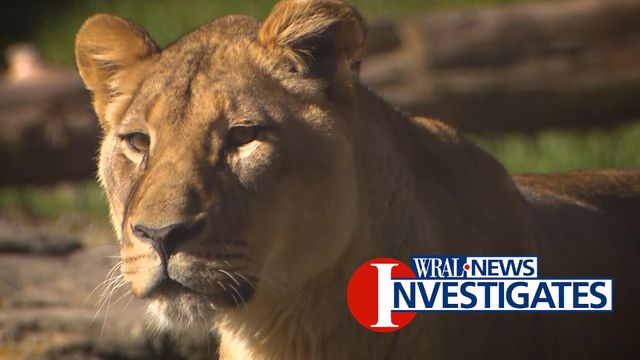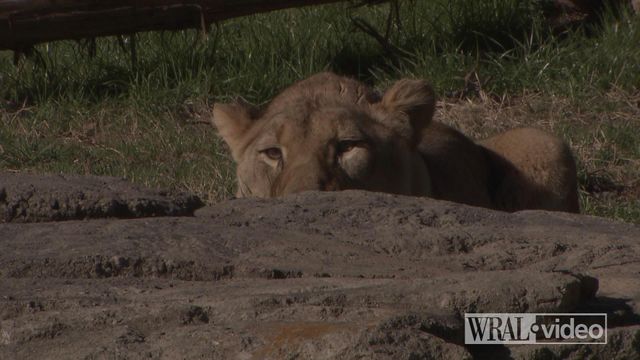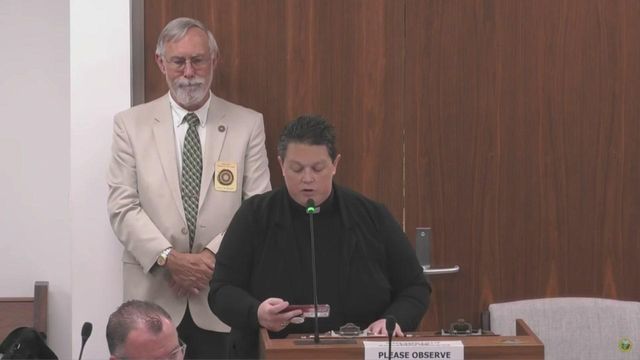Lions, tigers, bears: Perfectly legal as pets in some parts of NC
In 2003, a 10-year-old boy was killed at his Wilkes County home by his uncle's pet tiger when he was shoveling snow.
In 1995, Wake County resident Tyler Forsythe was just 3 when he was attacked by his father's pet tiger, which was bought from a pet store in Goldsboro. Forsythe lived, but the attack left him blind and scarred.
None of the dangerous animal owners were breaking state law, because there isn't one.
"It does not sit well with me that North Carolina does still allow people to have exotic animals such as large cats and primates because people are not doing right by those animals," said Jennifer Ireland, curator of mammals at the North Carolina Zoo.
She wonders why North Carolina is one of states without a law addressing private ownership of dangerous, wild animals.
"I've worked with dangerous and deadly animals for more than 20 years," she said. " I don't want these animals in my private life because I understand how dangerous they are and what specialized care that they need."
The debate is heating up again in North Carolina following the deadly mauling by a lion of a 22-year-old intern at the Conservators' Center, about an hour west of Raleigh.
The state last considered a bill to ban private ownership of big cats, wolves and bears back in 2015. It passed the house but went nowhere in the senate.
The Conservators Center, where the recent fatal attack happened, was at the front of the line in opposition to that bill.
"We do find it unbelievable that we're at risk, but if you look at the words of this bill, that is a fact," Julia Matson Wagner of the Conservators Center said in 2015.
The bill provided exemptions for zoos, sanctuaries and research facilities, and for people who lawfully owned animals prior to 2015, but the center argued that the bill would put them out of business.
With no state law to limit exotic animal ownership, many counties in North Carolina have passed their own rules. 12 counties in our area, including Wake, Durham and Cumberland, already ban owning dangerous animals. However, many still allow it. Wilson, Hoke and Person counties have no regulations.
You can also own lions, tigers and bears in Granville, Vance, Franklin, Chatham, Johnston and Edgecombe counties, but there are some rules.
"I think the state needs to look very carefully at private ownership of exotic animals," said State Senator Mike Woodard who worked on the law in 2015.
"When I looked at the issue, understanding that we really needed to limit the ownership of these exotic animals by private citizens, it seemed like a no-brainer," Woodard said.
But that wasn't the case.
"When you get into the opponents who think there should be no regulation on this ownership and then you got into the animal protection groups who couldn't agree on the best strategy to limit that ownership, I think we were surprised," he said.
The Carolina Tiger Rescue in Chatham County is a licensed animal sanctuary. Pam Fulk, the executive director, feels the state needs to address the private ownership issue.
"It's a public safety issue, and it is an animal welfare issue," said Fulk.
Fulk finds it odd the state has stricter rules for keeping species native to North Carolina.
"So you can not have a raccoon or a deer, but you can have a tiger or a lion or something else that kills you," she said.
Woodard says he's willing to take up the exotic animal issue again, but says it could take some heavy lifting to get it passed.
As for the Conservators Center, it passed a federal inspection in December, weeks after the fatal attack, and re-opened to the public.












